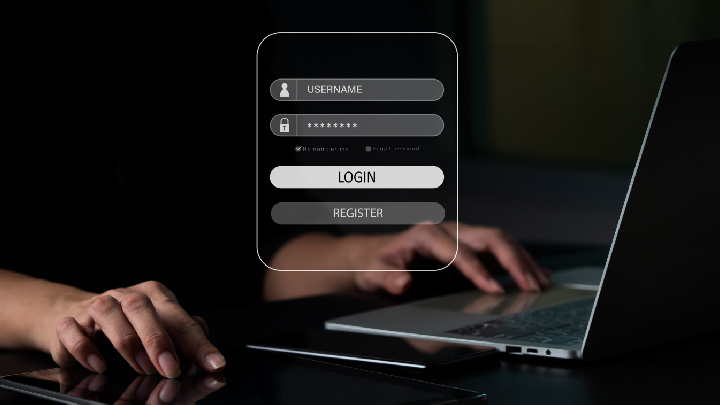
Fraud is rampant worldwide and does affect CUA members. Credit Union of America is vigilant in providing safeguards for CUA systems and member accounts. When both CUA and members take initiative in these safeguards, we can prevent or obstruct fraud and minimize member losses. We’re happy to share that in 2022, no losses were caused due to CUA systems and procedures. However, members reported over $1 million in fraud cases by unscrupulous scammers or family members. Either the swindler obtained information to access an account, or the member unknowingly participated with a scammer, or both! The best defense is a good offense. Prepare, be proactive, and protect!
Fraudulent Texts
Various forms of fraudulent texts are making the rounds again. Remember, CUA will never send a text message stating you are locked out of your account, that your account is restricted, or that you need to confirm information. Never provide personal information via a link that you were not expecting, from any company. Should you receive a text requesting information and it appears to be from CUA, please contact CUA Member Support at 800.256.8049 before clicking the link. Should you provide information and then rethink the action, contact us immediately during normal business hours so we can evaluate the situation, and take any added steps needed to protect your account.
Stolen Identity Loan Applications
Having someone steal your identity and then take out loans or credit cards in your name is a recipe for disaster. Be vigilant in protecting your personal information.
Do not share your personal information, name, birthdate, social security number, address, passwords, etc. with unknown entities.
Utilize Alerts within online banking. You can be notified when specific transactions are conducted, including logging into digital banking. Manage these options within CUA’s online banking under the Tools tab.
If you see unauthorized transactions or logins to your account(s), contact your financial institution(s) immediately.
Do not share personal information on social media sites or answer polls that ask for information that could possibly lead scammers to a password or login information. E.g. your pets name, favorite color, birthdate, street you lived on as a child, school you went to, etc.
Create strong passwords and change them frequently. This applies to all types of accounts, financial, retail shopping, social media, streaming services, and community memberships like museums.
Use different passwords on each site you utilize. If one gets compromised, the others won’t.
Sign up for a service that notifies you whenever your credit is pulled. Credit bureaus usually offer this service for their own specific company. There are third-party credit monitoring services that monitor numerous sites. Some are free, others charge a fee.
Check your credit report often to ensure there are no fraudulent applications being submitted. You can obtain free credit reports every 12 months from TransUnion, Equifax, and Experian at www.AnnualCreditReport.com. You do not have to request all three at the same time.
Never share online banking or account information with someone that is not a joint-owner.
Check your financial accounts frequently, both at statement time and during the month to watch for non-authorized transactions.
Job and Online Loan Application Scams
Fraudulent job and loan application sites often ask for online banking information. Supposedly for payroll, equipment, or verification purposes, even before you’ve gotten the job.
Fraudulent employers may send you a check via email for you to deposit. You are asked to return the funds so they can purchase equipment to send to your home office. Unfortunately, the check is insufficient and returned to your financial institution and the funds are removed from your account. By that time, you’ve already returned money to them from your account for the equipment, which never comes either. You are out the amount of money you sent and no job.
For fraudulent loan sites individuals are sent a check less than the loan amount and asked to deposit it and then return the funds to the “lender”. It’s explained that this verifies your account and/or that you can repay the loan. Same process and result as the employer scam. Original check is returned against your account, money has already been sent, and no loan. Legitimate lenders will never follow this process.
Suggest setting up the notifications where if anyone logs into online banking, you get a notification of the login. If you receive any notifications of logins, transactions, or any activity you did not perform, get with us ASAP to stop unauthorized transactions and prevent future ones.
Credit Card Scams
We’re back to seeing those sneaky “sweetheart” and “friend” scams. A “friend”, usually someone they have not met in person, offers to make a payment onto an innocent individual’s credit card. In return, they want the person to either get a cash advance off the card to send to the scammer’s checking account, purchase gift cards, or send to another third party. As with the employer and loan scams, the payment the scammer made ends up being returned insufficient or the financial institution may not accept it if it's not coming from the owner of the credit card account. Another red flag is the scammer will stress urgency in getting the money/gift cards sent to them so they receive it before you are notified that the payment to your credit card was not good. With the quick timing of events, the scammed person is out the money or gift cards they sent. In addition to being out the money, this could even result in an over-limit balance and fee when the card payment is returned.
Set your offense and prepare, be proactive, and protect your assets!
View All Articles